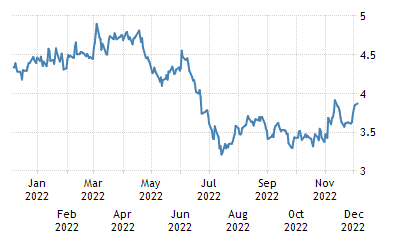
Value equities are a great investment option when deciding which stock to purchase. Value stocks often outperform growth stocks due to their proven track record of validating their high valuations. However, if you are looking to minimize volatility and risk, then consider investing in value equities like SoFi. Here are three reasons you should choose value stocks. Let's begin with the basics.
Growth stocks outperform value stocks
Many investors wonder if growth stocks or value stocks will outperform. Both strategies have their pros and cons, and they each come with their own set of risks. Experts are not certain of when growth stocks are likely to outperform their counterparts. Here's what you need to know before investing in either one of these stock types. While value stocks do outperform growth stock, they should still be part of your portfolio.
One of the primary differences between growth and value stocks is their potential for growth. Growth stocks tend to be more expensive, but they can still rise if all goes well. If things don't go according to plan, growth stocks can quickly plummet back to earth. Growth stocks are typically found in fast-growing sectors of the economy. They are usually highly competitive with multiple rivals which makes them an attractive investment.

There is a clear path for growth stocks to be validated at high valuations
As investors expect future earnings growth, the risk of investing in growth stock investments is high. However, they also come with equal risk. The greatest risk is that the growth expected doesn't happen. Stockholders paid a high price to acquire growth stock shares. However, if they don’t get their desired growth, the price could plummet dramatically. Growth stocks may not pay dividends.
One of the key characteristics of growth stock is the ability for them to grow in value. Many companies based on growth models are able to realize huge capital gains by investing in them. These companies tend to have a strong track history of innovation, but they are often lacking in profitability. This can lead to investors losing money but many growth companies are able overcome this risk. Growth stocks are typically smaller-cap companies that are newer or have a sector that is rapidly changing.
Value stocks offer lower risk and volatility
While growth stocks can benefit from inflation, value stocks have historically underperformed. Inflation plays a significant role in determining a stock’s value. Value stocks are better equipped to perform in periods of decelerating or increasing inflation. In periods of increasing inflation, value stocks usually gain about 0.7% per month, while they lose less in times of declining inflation.
However, investing in value stock can result in lopsided portfolios. A lot of equities already have a low risk and low volatility profile so adding a value allocation to your portfolio could lead to a large amount of exposure the same stocks. Growth stocks, on the other hand, are often more volatile and may not prove to be worth the risk. Value stocks are not guaranteed winners in a bear market, but long-term studies have shown that value stocks can eventually re-rate themselves.

SoFi is a value equities
SoFi is a value equity fund with a diversified portfolio that includes stocks and bonds. Exchange Traded Funds, also known as ETFs, are offered by the company. They invest in a wide range of sectors. SoFi charges management fee that can reduce fund returns. Although SoFi is not paid sales commissions or 12b-1 fee for ETFs sold, it might earn management fees through its own funds. However, investors should consider this before investing.
The value of diversification is that it reduces risk. Diversification is a way to minimize investment risk. However, diversification cannot guarantee profits or protect against losses during a market downturn. SoFi information is not meant to be used as investment advice. Information provided by SoFi serves as a guideline only. SoFi is not able to guarantee future financial performance. SoFi Securities, LLC, a member FINRA, SIPC. SoFi Invest provides three trading and investment platforms. Each customer account may have its own terms and conditions.
FAQ
What is the difference of a broker versus a financial adviser?
Brokers are individuals who help people and businesses to buy and sell securities and other forms. They handle all paperwork.
Financial advisors can help you make informed decisions about your personal finances. Financial advisors use their knowledge to help clients plan and prepare for financial emergencies and reach their financial goals.
Banks, insurance companies and other institutions may employ financial advisors. You can also find them working independently as professionals who charge a fee.
Consider taking courses in marketing, accounting, or finance to begin a career as a financial advisor. Additionally, you will need to be familiar with the different types and investment options available.
How Share Prices Are Set?
Investors who seek a return for their investments set the share price. They want to earn money for the company. They purchase shares at a specific price. Investors will earn more if the share prices rise. If the share price falls, then the investor loses money.
Investors are motivated to make as much as possible. They invest in companies to achieve this goal. It allows them to make a lot.
How are securities traded?
The stock exchange is a place where investors can buy shares of companies in return for money. Investors can purchase shares of companies to raise capital. When investors decide to reap the benefits of owning company assets, they sell the shares back to them.
Supply and demand are the main factors that determine the price of stocks on an open market. The price of stocks goes up if there are less buyers than sellers. Conversely, if there are more sellers than buyers, prices will fall.
You can trade stocks in one of two ways.
-
Directly from the company
-
Through a broker
How Do People Lose Money in the Stock Market?
The stock market does not allow you to make money by selling high or buying low. It's a place where you lose money by buying high and selling low.
The stock market offers a safe place for those willing to take on risk. They are willing to sell stocks when they believe they are too expensive and buy stocks at a price they don't think is fair.
They believe they will gain from the market's volatility. If they aren't careful, they might lose all of their money.
Who can trade on the stock market?
Everyone. However, not everyone is equal in this world. Some have greater skills and knowledge than others. They should be recognized for their efforts.
But other factors determine whether someone succeeds or fails in trading stocks. You won't be able make any decisions based upon financial reports if you don’t know how to read them.
So you need to learn how to read these reports. Each number must be understood. And you must be able to interpret the numbers correctly.
You'll see patterns and trends in your data if you do this. This will help you decide when to buy and sell shares.
You might even make some money if you are fortunate enough.
How does the stockmarket work?
By buying shares of stock, you're purchasing ownership rights in a part of the company. The company has some rights that a shareholder can exercise. A shareholder can vote on major decisions and policies. He/she may demand damages compensation from the company. He/she can also sue the firm for breach of contract.
A company cannot issue shares that are greater than its total assets minus its liabilities. This is called "capital adequacy."
A company with a high capital adequacy ratio is considered safe. Companies with low ratios of capital adequacy are more risky.
Statistics
- The S&P 500 has grown about 10.5% per year since its establishment in the 1920s. (investopedia.com)
- "If all of your money's in one stock, you could potentially lose 50% of it overnight," Moore says. (nerdwallet.com)
- For instance, an individual or entity that owns 100,000 shares of a company with one million outstanding shares would have a 10% ownership stake. (investopedia.com)
- Individuals with very limited financial experience are either terrified by horror stories of average investors losing 50% of their portfolio value or are beguiled by "hot tips" that bear the promise of huge rewards but seldom pay off. (investopedia.com)
External Links
How To
How to Invest Online in Stock Market
Investing in stocks is one way to make money in the stock market. There are many ways to do this, such as investing through mutual funds, exchange-traded funds (ETFs), hedge funds, etc. Your risk tolerance, financial goals and knowledge of the markets will determine which investment strategy is best.
To become successful in the stock market, you must first understand how the market works. Understanding the market and its potential rewards is essential. Once you know what you want out of your investment portfolio, then you can start looking at which type of investment would work best for you.
There are three types of investments available: equity, fixed-income, and options. Equity is the ownership of shares in companies. Fixed income means debt instruments like bonds and treasury bills. Alternatives include commodities, currencies and real estate. Venture capital is also available. Each option has its pros and cons so you can decide which one suits you best.
Once you have determined the type and amount of investment you are looking for, there are two basic strategies you can choose from. The first strategy is "buy and hold," where you purchase some security but you don't have to sell it until you are either retired or dead. Diversification refers to buying multiple securities from different categories. You could diversify by buying 10% each of Apple and Microsoft or General Motors. Multiplying your investments will give you more exposure to many sectors of the economy. You are able to shield yourself from losses in one sector by continuing to own an investment in another.
Risk management is another key aspect when selecting an investment. You can control the volatility of your portfolio through risk management. You could choose a low risk fund if you're willing to take on only 1% of the risk. However, if a 5% risk is acceptable, you might choose a higher-risk option.
Learn how to manage money to be a successful investor. A plan is essential to managing your money. A plan should address your short-term and medium-term goals. It also needs to include retirement planning. That plan must be followed! You shouldn't be distracted by market fluctuations. Stick to your plan and watch your wealth grow.